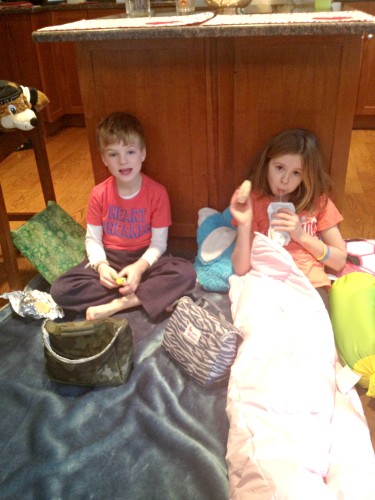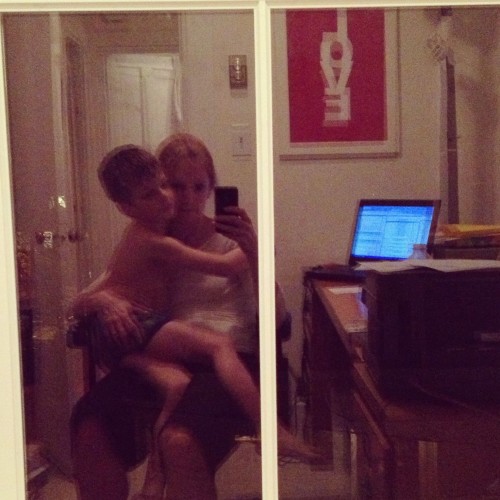
This is what happened a few weeks ago, during Nemo: Friday, snowday. Monday, snowday. Tuesday, conference day. I work full time. I do not have anywhere near full time childcare. Put these things together and you create a difficult brew with the potential for raised voices, frustration, and hurt feelings. I think of the witches at the start of MacBeth, even.
Because I had known all along we weren’t going to have school on Tuesday, I’d booked Monday solid. From 8am to 4:30 I had phone calls in 30 minute increments. Sunday evening, the phone rang and the school’s number came up on caller ID. I picked up, my stomach sinking. The familiar automated voice began … Another snow day.
As my friend Christine says, I love when I can be relaxed and roll with a snow day. I love when – and this is sometimes true – I’m able to reschedule things and spend the day sledding, baking cookies, and just hanging out. But at this particular moment, I couldn’t be that mother. I was just grateful that my office is in my house, so I could at least be in the building with Grace and Whit. I know a lot of people don’t have this luxury.
All morning long I ran back and forth between my office and the family room. I set the kids up with a big game of War with my grandfather’s old orange and black cards before capitulating and letting them have their screens. Whit played Minecraft and Grace played games with cartoon dogs on her itouch. It was mostly calm. But I could hear them talking when I was on my work calls, and could see my email piling up during the minutes I stayed with them. The strands of my life, which mostly keep me steady, upright, pulled at me from all sides.
I had already packed lunch before the snow day call came, so we brought down a blanket, spread it out on the kitchen floor, and the kids had a picnic with their lunchboxes. They were slow to eat, and finally I had to go upstairs for an interview on the phone, and Grace sat on the floor, arms crossed, crying, angry that I was abandoning them during lunch. A few minutes into my call I heard their quiet footsteps on the hardwood floor outside my closed office door, and then the soft click of the family room door closing behind them. Throughout that phone call I was distracted, heavy with sorrow, aware of all the things I am not doing well enough.
That night, as I tucked her in, Grace said her prayers as usual. These prayers vary slightly day to day, thought they are always a simple list of thanks. This is so without my ever having coached her; it’s just her instinct. The impulse to say thank you must run in our family.
That night, my day of imperfect juggling of their needs and those of work, Grace said, “Thank you for so much screen time.” Oh, great. But then she said, “Thank you for letting Mummy work from home.” My eyes filled with tears. And then she continued, “And thank you for getting to live in this awesome world,” and I felt a rush of something like gratitude, something like forgiveness, something like grace.
Few things reveal the cracks and crevasses in a life like a snow day when you’re a working parent (particularly the one who has primary responsibility for the children that day). I’ve noted before that my family’s life spins fast, and that we all, and me especially, keep a lot of balls in the air. Most of the time this works for us. But on a snow day the tightrope that I walk every day feels tauter, less forgiving, and a fall seems more likely, more perilous. I remind myself, always, firmly, that this is a conflict of privilege, that having both work and children I love is a tremendous blessing. I think of my childless 26 year old self, boldly saying this to a roomful of much older women, all mothers. What I’ve learned, though, is I can be aware of my good fortune and still exhausted by the demands it brings, still sliced – to ribbons! – by the sharp edges of my commitments, my promises, my loves.





